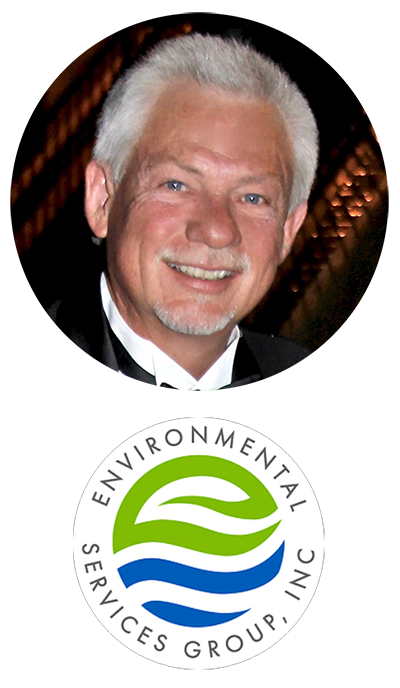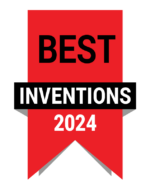 For Tim McDonald, Vice President with Environmental Services Group, Inc. (ESGI), a career in environmental remediation evolved after years of extensive experience in the oil and gas industry. Managing various aspects within the oil and gas sector, which included geological areas of the underground portions of environmental engineering, sparked an intense interest in the environment, eventually leading McDonald to ESGI, where he’s had an expansive role. ESGI, a valued client of REGENESIS, is a full-service provider of innovative solutions for regulatory compliance in the environmental field. He shares, “The scientific and engineering mechanisms that can be applied to both protect the environment and prevent damage from industrial activity were very appealing, so a move to environmental remediation was a natural progression for me and my career.” In his current role at ESGI, McDonald is responsible for engineering and environmental design work for permit acquisitions that include mining, air, and water discharge. He also manages bioremediation and environmental cleanup that includes soil and water sampling, as well as the remediation of soil and water contamination. He continues, “I also manage reporting for our client’s companies on yearly hazardous waste, TRI (Toxic Release Inventory), and discharge monitoring reporting. Additionally, I provide larger scale environmental cleanup and manage regulatory reporting projects.” Prior to joining ESGI, McDonald served as President of McDonald & Johnson Resources, LLC, after working as Asset Manager for Union Oil of California (UNOCAL). Before joining UNOCAL, he worked for Amoco as its Asset Manager for the company’s Gulf of Mexico region. His university studies include a BS in Science and Electrical Engineering from the University of Arkansas and an Executive Master’s degree in Business Administration from Harvard Business School. He is also a Registered Professional Engineer (P.E.) in the state of Arkansas. To remain up to date on emerging trends in his field, McDonald attends a variety of seminars each year that address a wide range of environmental issues.
For Tim McDonald, Vice President with Environmental Services Group, Inc. (ESGI), a career in environmental remediation evolved after years of extensive experience in the oil and gas industry. Managing various aspects within the oil and gas sector, which included geological areas of the underground portions of environmental engineering, sparked an intense interest in the environment, eventually leading McDonald to ESGI, where he’s had an expansive role. ESGI, a valued client of REGENESIS, is a full-service provider of innovative solutions for regulatory compliance in the environmental field. He shares, “The scientific and engineering mechanisms that can be applied to both protect the environment and prevent damage from industrial activity were very appealing, so a move to environmental remediation was a natural progression for me and my career.” In his current role at ESGI, McDonald is responsible for engineering and environmental design work for permit acquisitions that include mining, air, and water discharge. He also manages bioremediation and environmental cleanup that includes soil and water sampling, as well as the remediation of soil and water contamination. He continues, “I also manage reporting for our client’s companies on yearly hazardous waste, TRI (Toxic Release Inventory), and discharge monitoring reporting. Additionally, I provide larger scale environmental cleanup and manage regulatory reporting projects.” Prior to joining ESGI, McDonald served as President of McDonald & Johnson Resources, LLC, after working as Asset Manager for Union Oil of California (UNOCAL). Before joining UNOCAL, he worked for Amoco as its Asset Manager for the company’s Gulf of Mexico region. His university studies include a BS in Science and Electrical Engineering from the University of Arkansas and an Executive Master’s degree in Business Administration from Harvard Business School. He is also a Registered Professional Engineer (P.E.) in the state of Arkansas. To remain up to date on emerging trends in his field, McDonald attends a variety of seminars each year that address a wide range of environmental issues.
When it comes to working with REGENESIS, McDonald appreciates the company’s level of expertise and the staff’s focus on successful outcomes. He shares, “REGENESIS has a great team of technical professionals that can take the base data and develop real solutions to correct problems, and they are very thorough and timely in their analysis and design. Also, I’ve been quite impressed with the actual field implementation of these program designs. The team has been very communicative leading up to a recent project, and spot-on in beginning the work and being prepared to implement the plan in a timely manner.” He points to a particular example which involved a large shopping center project, where drilling the injection wells turned out to be more difficult than planned. He continues, “Since the area has a high amount of chert layers at 15 to 20 ft. bgs, drilling the injection wells to thirty feet was not always possible. As the team attempted to drill several wells in the pattern designed for the application, several wells were simply not able to get to the planned depth. In very heavy rains, the team had to coordinate with the design engineers ‘on the fly’ to create a new well pattern and injection profile that met the standards of the planyet adapted to a fewer number of wells in a different pattern. REGENESIS accomplished this task in a very quick manner and completed the project in the original planned time frame.” McDonald adds, “They have impressed me, from their technical design, to their field implementation, including their genuine interest in the projects and success post-job. Just a great bunch to work with, and I have a high degree of confidence in their ability to perform.” As for what he feels the future holds for environmental remediation, McDonald feels there is substantial work to be done in educating certain industries on how current environmental laws and regulations integrate into their core business. He continues, “Unfortunately, many legacy industries were not regulated or even aware of the long-term impact of their operations on the environment. Many of these legacy industrial practices (not allowed under recent environmental laws and regulations) have left behind environmental damage from years of neglect and careless practicesThese legacy problems are hard to correct once contamination has entered the sub-surface soil and groundwater.” McDonald continues, “Recently, sophisticated bio-remediation techniques have helped deliver practical solutions to remediate these problems and rid the subsurface of contaminated soil, and especially ground waters. In the future, I feel both the need and application of bio-remediation will continue to increase.”
Throughout his time with ESGI, McDonald and his wife have lived in Little Rock, AR, where he works out of the firm’s corporate office. He likes how ESGI is positioned, pointing to the firm’s growing list of clients, which currently number over 500. “The company has been in business more than 23 years,” he says. “Our many clients are spread throughout 45 states in the continental US. ESGI strives to continue to build our base of clients and increase our scope of services.”
In his free time McDonald enjoys hunting, fishing, and a challenging, yet picturesque round of golf. He also finds time to volunteer with Habitat for Humanity and The United Way. When asked what he enjoys most about his work, he feels the steady cadence of diverse and challenging projects provides an ideal situation. He continues, “From different clients around the country to different environmental projects that we come across, the job is always changing and seems to rarely repeat itself. It’s rewarding to accomplish new things our company has never or rarely done before, and to feel we have helped our clients, the regulators, and the country as a whole to solve or correct problems that have been a detriment to the environment or human health and safety.” And the most challenging part of his job? “The most demanding aspect is to accomplish these many projects in a timely manner, with a consistent stream of new business and the steady diet of “emergencies” or urgent matters that must be taken care of, oftentimes on short notice.”
When asked how he would encourage others to join his field of study, McDonald feels there will be plenty of opportunities in the foreseeable future to meet the increased demand. He concludes, “There continues to be more, and tighter environmental regulations put in place every day, leading to a great need for technical professionals in this field. Also, as business becomes more and more aware that most of their efforts somehow come with a set of environmental standards that must be adhered to, more environmental and health and safety professionals need to enter the field to keep up with the demand.”
REGENESIS is proud to have Tim McDonald, Vice President with Environmental Services Group, Inc., as a valued client and partner in environmental remediation, and appreciates his diverse technical experience and knowledge base in providing successful remediation outcomes for REGENESIS and its clients.

 Americas
Americas Europe
Europe Français
Français Deutsch
Deutsch Italiano
Italiano Español
Español



